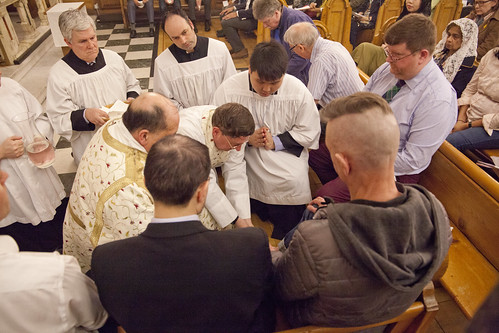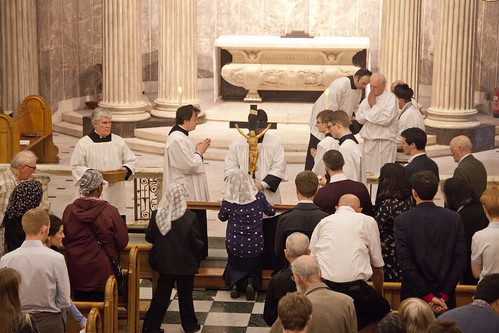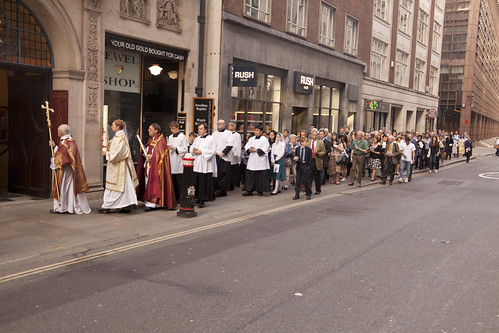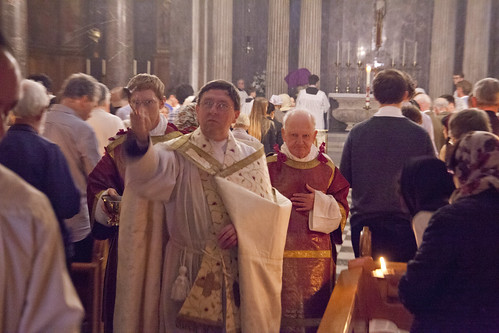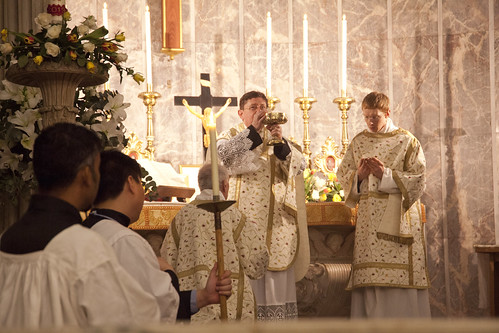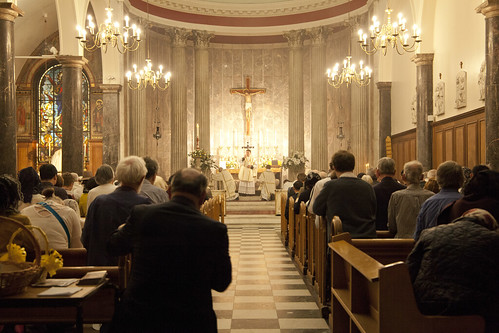Chairman's Blog
Fr Lawrence Lew: talk in London on Friday
Fri 31 May: Fr Lawrence Lew OP will speak on 'The Traditional Liturgy and Lay Men in the Church'
This is one of the Iota Unam talks; it will start at 7pm in the basement of Our Lady of the Assumption, Warwick Street. Doors open at 6:30pm.
Our Lady of the Assumption and St Gregory
Warwick Street
LONDON, W1B 5LZ
The talk will be preceded by drinks and followed by questions and a recitation of Compline of the Little Office of the Blessed Virgin Mary.
Conference on the Liturgy 8th June in London
Letter in the Tablet
 |
| Google images suggests that Fr Baldovin favours the 'tab' collar, when he's not in a jacket and tie. |
This weekend I have a letter in The Tablet. Last week they carried a strange lament by an aging liberal, Fr John Baldovin SJ, complaining about the traditional tendencies of young Jesuits: I assume his experience is of the USA. Since the formation of these men is in the hands of his own generation, it must feel like a bit of a failure. He informs Tablet readers that he has to spend ages explaining to these youngsters that the Traditional Mass and associated things like the Roman collar (horrors!) are bad because they carry with them the baggage of an 'insular' conception of the Church from before the Council. Alas, he doesn't have space to explain exactly what that means or how it works. Why prayers composed in the 7th century, for example, or ceremonies developed in the 12th, are all about the Church of the 1950s.
They have published my response.
Fr John Baldovin SJ (11th May) makes a surprising criticism of the ancient Latin Mass: that it brings with it a ‘insular’ vision unsuited to mission. Is this not the Mass which converted Latin America, which established the Church in Imperial China, and which was equally at home at the court of Louis XIV, and the mission stations of Africa?
The astonishing breadth of historical and cultural circumstances in which the Church’s venerable Latin liturgy has sustained martyrs and formed saints reflects both the long and varied period in which it was developed, and also an attitude, which it encourages, towards the liturgy as something objective, given to us, and precisely not specially adapted to our personal needs and circumstances.
The reformed Mass, by contrast, not only relies more heavily on the personality of the celebrant, but [inevitably] bears the marks of its creators’ interests and concerns. These are those of a small group of mainly European liturgists, whose ideas formed in the 1940s and ‘50s. To the younger generation of traditionally-inclined priests who cause Fr Baldovin such concern, the Mass these men produced looks about as up-to-date as the transistor radio.
The Letters Editor cut out the word 'inevitably', making me sound a little less reasonable, a little more hostile. When trying to win the argument about the Mass, every advantage is worth having, isn't it?
Review of Mosebach "Subversive Catholicism"
This was commissioned by, and is printed in, the European Conservative, a journal of which I had not previously been aware.
That such a phenomenon as the ancient Roman Rite should find a conservative defender might not seem surprising, but at that time this form of the liturgy had become a kind of forbidden fruit, something which conservatives who wished to be taken seriously as mainstream figures had ritually to disavow. In this context, it was little short of astonishing that Mosebach’s volume of reflections would be published by Ignatius Press, a conservative American Catholic publisher which had made the avoidance of this ‘third-rail’ issue the key to its intellectual respectability.
Support the Latin Mass Society
The book of the Position Papers is now available
Long-term readers will remember the series of short 'Position Papers' I published on behalf of the FIUV--Una Voce International--on a variety of subjects about the ancient Mass, both aspects of it which need to be explained to those unfamiliar with it, and ways in which it can assist the Church in evagelisation.
Support the Latin Mass Society
Can we accuse the Pope of heresy?
Don't modernise Notre Dame
My latest on LifeSiteNews
Easter Triduum in London: photos
I have processed my photographs from the Easter Triduum at St Mary Moorfields in London, which were organised by the Latin Mass Society. Here are some highlights; click through to find the whole set.
Maundy Thursday is always well attended. The church was packed.
Carrying the Blessed Sacrament to the Altar of Repose
Good Friday: the clergy prostrate themselves.
This year the Afternoon Liturgy was celebrated earlier than in the past: at 3pm (the church was free), and better attended than ever before. As with the other days, the church was full.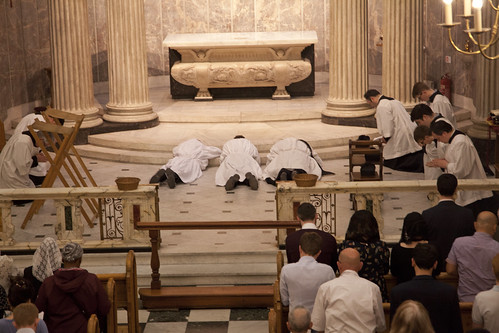
Tenebrae: we celebrated all three, each anticipated the evening before.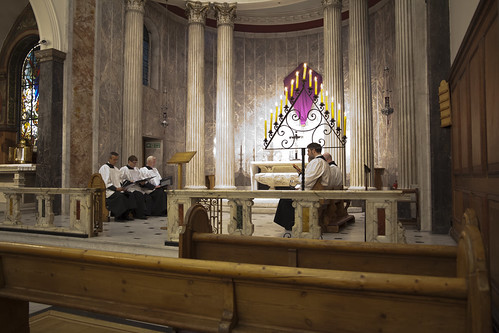
Easter Vigil: blessing the fire
Support the Latin Mass Society
Prayer Vigil for Life with the Traditional Dominican Rite, 10th May
At St Dominic's, Haverstock Hill, in London.
Rigid Catholics: a talk in London
 And I ask myself: Why so much rigidity? Dig, dig, this rigidity always hides something, insecurity or even something else. Rigidity is defensive. True love is not rigid.
And I ask myself: Why so much rigidity? Dig, dig, this rigidity always hides something, insecurity or even something else. Rigidity is defensive. True love is not rigid.I shall be giving a talk, 'Why do they call you rigid?', in London on Friday.
It is part of the Iota Unum series, and will take place at 7:30pm in the basement of Our Lady of the Assumption, Warwick Street, on Friday 26th (Easter Friday).
Access via the basement steps from Golden Square (map).
£5 on the door; drinks provided.
I shall be discussing the development of the notion of psychological rigidity from the 1930s, the way the theory has been used, problems with the theory, its relationship with the Catholic faith, and how one can respond when accused of rigidity.




